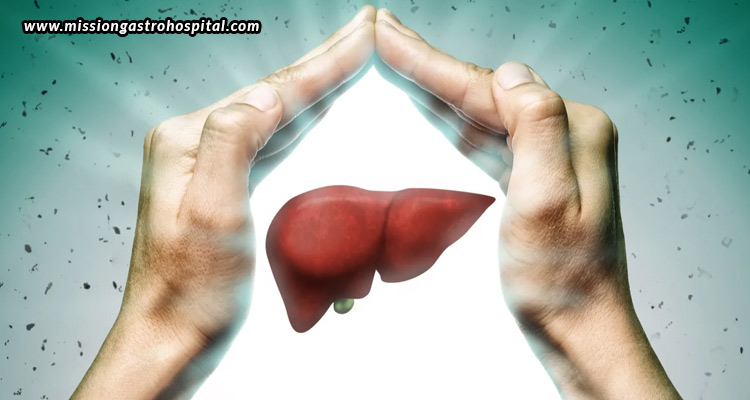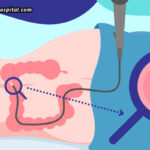Stress has become an almost unavoidable aspect of daily living in today’s fast-paced world. Chronic stress affects millions of people, from interpersonal problems and incessant internet temptations to financial strains and tight work obligations. Although the majority of people link stress to mental health issues like worry or sleep problems, stress actually has a much more profound effect on your organs too. Your liver is one of the important but often overlooked systems impacted by long-term stress. This blog examines the connection between stress and liver health, how chronic emotional stress can exacerbate liver disease, and doable tactics to reduce stress and save your liver.
Understanding the connection between stress and liver health
The liver is in charge of more than 500 essential processes, such as hormone regulation, nutrition metabolism, and toxic drug detoxification. However, through a series of biochemical processes, long-term stress can impair the liver’s functionality. Cortisol, a hormone implicated in the “fight or flight” response, is released by the adrenal glands in response to signals from the brain while under stress. Although there are advantages to short-term cortisol release, long-term elevation can raise blood sugar, cause insulin resistance, encourage the buildup of visceral fat, particularly around the liver, increase inflammation, and interfere with immunological and hormonal processes. The liver is severely burdened by these combined consequences, which hinders its capacity to cleanse, regenerate, and preserve good health.
How stress affects the liver
Even while it might not be the primary cause of liver damage, stress can exacerbate pre-existing liver disorders or set off underlying metabolic abnormalities.
- Non-Alcoholic Fatty Liver Disease: Chronic stress is associated with poor food choices, weight gain, and insulin resistance—all of which are significant risk factors for non-alcoholic fatty liver disease. Increases in cortisol brought on by stress may encourage the liver to store fat, which can result in fatty liver buildup.
- Hepatitis B & C: Stress can impair immunity, which makes it more difficult for the body to fight off viral infections like hepatitis B and C. Chronic stress may serve as a trigger for autoimmune hepatitis, intensifying the body’s assault on liver cells.
- Alcohol-related liver disease: Many people use emotional eating or drinking as a coping mechanism for stress. One of the main causes of cirrhosis, liver inflammation, and even liver failure is excessive alcohol usage. Stress can exacerbate addiction and hinder the healing process.
- Inflammation and oxidative stress: Stress causes more free radicals to be produced, which results in oxidative stress, which harms liver cells and encourages inflammation. Over time, this increases the risk of cirrhosis and fibrosis in addition to hastening liver aging.
Symptoms of liver stress
It may be difficult to detect early symptoms of liver malfunction since the liver lacks pain receptors. Nonetheless, the following signs could point to your liver being stressed:
- Bloating or pain in the abdomen
- Poor digestion or constipation
- Chronic exhaustion and low vitality
- Depression, irritation, and mood swings
- Skin conditions such as eczema or acne
- Jaundice (severe cases of yellowing of the skin and eyes)
It is crucial to see a liver specialist and have regular liver function testing performed if you have any of these symptoms for a longer time span. Mission Gastro Hospital in Ahmedabad is a trusted centre for liver care, offering expert consultation, advanced diagnostics, and personalized treatment plans. Every liver specialist in Ahmedabad working here is committed to ensure comprehensive management of all kinds of liver-related conditions.
How to support liver health and reduce stress
Stress management involves more than just maintaining mental calm; it also involves preventing long-term harm to critical organs like the liver. Here are some proven techniques to lower stress while also improving liver health:
- Liver-friendly diet: A healthy diet is essential for managing stress and the liver. This includes incorporating leafy greens and berries to reduce inflammation, avocados and bananas to promote relaxation, and good fats from olive oil, nuts, and seeds. It is also essential to steer clear of processed meals, sweets, and trans fats as they encourage the accumulation of fat in the liver.
- Limiting both caffeine and alcohol: Both caffeine and alcohol increase pressure on the liver. While there may be some liver-protective benefits to moderate coffee drinking, excessive use, particularly under stress, can cause dependency and throw off your body’s natural cycles.
- Meditation and mindfulness: Even ten minutes a day of mindfulness or meditation can help relax the nervous system and reduce cortisol levels. These techniques promote self-awareness, emotional management, and reduce inflammation, all of which boost liver function. Simple breathing exercises can also instantly reduce stress and calm the mind.
- Regular exercise: Exercise increases insulin sensitivity, lowers anxiety, and increases endorphins. It also promotes fat metabolism and inhibits the accumulation of fatty liver. Try to get in at least 30 minutes of moderate activity, such as yoga, swimming, or brisk walking, every day.
- Good sleep: Prolonged sleep loss exacerbates stress and raises cortisol levels. Poor sleep also impacts liver repair, which mostly happens during night. It is essential to establish a regular bedtime routine and aim for 7 to 8 hours of undisturbed sleep.
- Preventive health checkups: Routine health checkups and liver function tests can detect early changes in liver health and stress-related imbalances. If you are chronically stressed, overweight, or have a family history of liver disease, such regular monitoring is essential. Visiting a liver specialist ensures early diagnosis, especially when stress-related issues are part of your lifestyle.
As you can see, stress can become a secret cause of liver failure. It is thus important to take care of your liver health, and promote your liver’s optimal function by implementing the above-mentioned strategies. Also, be mindful and aware of any warning signs regarding chronic stress or liver strain, and make sure to approach a medical expert for proactive advice and thorough treatment.








